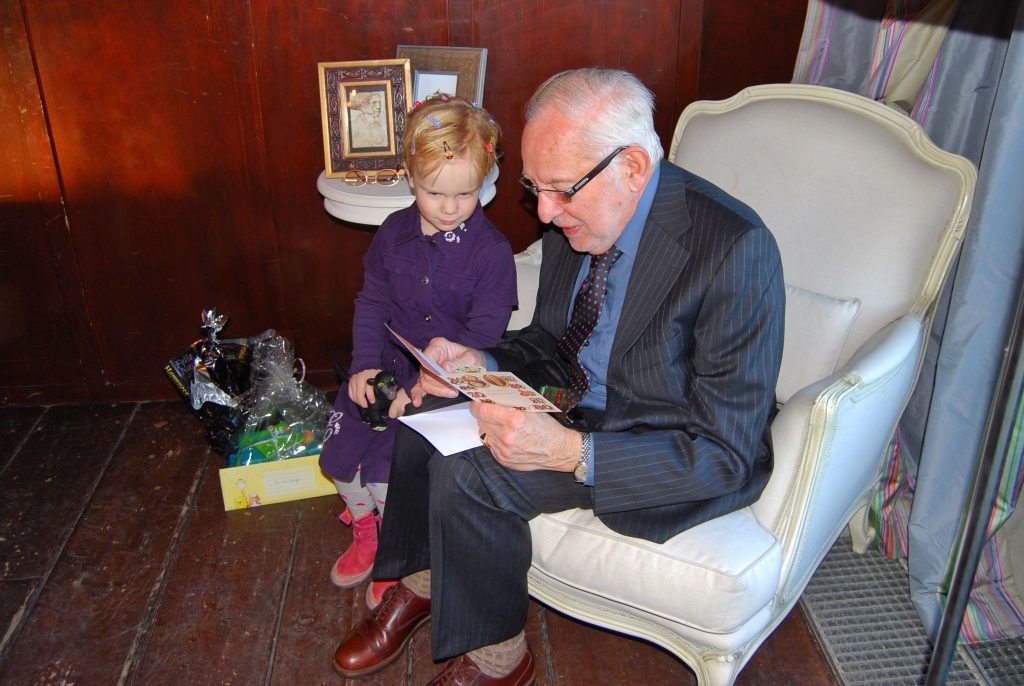By Kyrié Carpenter
Thoughts of winter holidays come with brainstorming presents for loved ones. If one or more of your loved ones is living with dementia knowing the perfect gift can be challenging. At its best, a gift is a way of showing a dear one how we see them and reminding them of our care throughout the year.
Eminent dementia researcher Tom Kitwood, quoted throughout, identified five core psychological needs. We will let them be our gift-giving guide. His work focused on improving the quality of life and care for people living with dementia. Yet, his wisdom is not exclusive to that population.
The concepts below, while learned from those living with dementia, can be applied to find a deeply
meaningful gift for any senior. Using these five categories, you are sure to get a gift that is not only meaningful but will help improve your loved one’s quality of life.
Comfort
Tom Kitwood defined comfort as “the feeling of trust that comes from others.” This is the feeling of being at ease around others. For people living with dementia, and many of us, the holidays can be a time of increased anxiety. While no gift can replace the trust between humans, by reducing underlying anxiety, we can create an environment for trust to form.
Check out these gift ideas to make life easier and increase comfort:
- Weighted blankets reduce stress by creating a calm, grounded feeling like a hug.
- Delivery of their favorite food throughout the year. This great way to help your loved one and remind them of the care and comfort you provide even when you cannot be there in person. There are a host of delivery sites for everything from groceries, to ready to make meals to delivery from a favorite local restaurant.
- Pee proof undies reduce anxiousness around incontinence by being discrete and effective. Belly laughs are nothing to worry about anymore!
- Adaptive clothing takes the stress out of getting ready for holiday parties. More and more brands are offering adaptive lines!
Attachment
Another core psychological need is attachment or “security and finding familiarity even in unusual places.” This is the feeling of knowing you belong. For many people living with dementia, they miss people and places from other times of their lives.
Try one of these gifts to create a sense of attachment:
- Photo books or photos to make a wall of memories create a talking piece to bond over and spark attachment through the recognition of the familiar.
- Photos of past homes and favorite vistas can be printed large to create ‘windows’ to another time even in an unfamiliar place.
Inclusion
Inclusion is “being involved in the lives of others.” This desire doesn’t fade after a diagnosis of dementia. Around the holidays, it is extra important to make sure everyone feels included and valued.
Here are some ideas for how to foster inclusion:
- Do something together. What is your loved one’s favorite activity? Is there something they used to love that is a bit more challenging now? Can you make accommodations to make it accessible to them? Buy them tickets or make them a homemade ‘gift certificate’ redeemable for spending meaningful time together.
- Connecting through the arts offers a way to foster inclusion even as communication changes. Gift some music or art supplies and then use them together.
- An ipad or other tablet is a great gift that can be used to connect from afar.
- Beat ageism. Think about where ageism might be creating exclusion. Was there something your loved one used to love that they now say they are “too old” to do? Explore if they are still interested in this activity. Then use your youth and ability privilege to help them do it!
Occupation
I love Kitwood’s definition of occupation as “being involved in the processes of normal life.” This is one of the first things stripped from one with a dementia diagnosis. The holidays, as a central part of life, become the perfect place to foster this need.
Try the following:
- Create a dementia-inclusive environment so that your loved one can participate. This may include gifting them a universal design consultation for their homes.
- Universally designed objects make a great gift. Be sure to steer clear of infantilizing objects. A good rule of thumb is thinking if you would want it too. An induction cooktop is a great example. It makes the kitchen safer and easier for people of all ages and abilities. Easy-grip utensils also make cooking easier for anyone who uses them.
Identity
The final core psychological need is identity or “what distinguishes a person from others and makes them unique.” Throughout the journey with dementia, it is so important to continue to support the vibrancy and variety of the individual.
Think about the following:
- What makes them awesomely them? Make a list of everything unique about your loved one. Brainstorm how can you support that expression.
- Help share their unique identity with future generations. You can do this DIY by creating a book about them to share or through supportive services.
Kitwood theorized that when all of these psychological needs were met, they culminated in love. Isn’t showing love the very point of gifts in the first place? This holiday season, start from the love in your heart. Think about which of these needs matter most for your loved one right now. Imagine how to best meet that need with your gift and you cannot go wrong.
Resources
Person-centred care for people with dementia: Kitwood reconsidered







